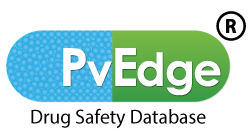Need for this
When a new drug is released, some side effects may only appear after widespread use. Signal detection helps find these hidden risks that clinical trials might miss.
It also tracks changes in known side effects, like increased frequency or severity. This allows companies to act quickly updating safety information, issuing warnings, or withdrawing the drug if needed.
For healthcare professionals, timely signal detection provides the latest safety updates, helping them make better decisions for patient care.
How it Benefits

Early Warning System

Enhanced Drug Safety

Regulatory Decisions
How We Are Using This in Existing Products
In PvEdge®, we use advanced methods like Proportional Reporting Ratio (PRR) and Chi-Square Algorithm to detect safety signals. These techniques help identify unusual patterns in large datasets, making it easier to spot potential risks.
We use both quantitative and qualitative approaches to ensure no critical information is missed. Our system automatically reviews data from various sources—such as individual case reports (ICSRs), scientific literature, and regulatory databases—saving time and reducing manual work.
Automation also helps in validating signals and preparing reports, ensuring everything is accurate and ready for audits or regulatory reviews. Customizable dashboards give teams a clear view of ongoing risks and emerging safety concerns.
Result of Implementation of Signal Detection

Time Savings
Automation reduces manual data review, enabling faster identification and reporting of safety signals.

Higher Productivity
Teams can focus on analyzing critical risks while the system handles data collection and signal validation.

Better Accuracy
Advanced algorithms minimize false positives, ensuring precise detection of genuine safety concerns.

Scalability
Handles large and growing datasets effortlessly, adapting to evolving regulatory and business needs.
